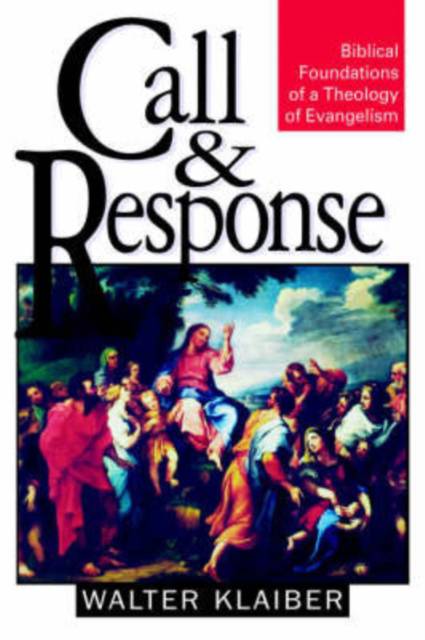
- Afhalen na 1 uur in een winkel met voorraad
- Gratis thuislevering in België vanaf € 30
- Ruim aanbod met 7 miljoen producten
- Afhalen na 1 uur in een winkel met voorraad
- Gratis thuislevering in België vanaf € 30
- Ruim aanbod met 7 miljoen producten
Zoeken
Call and Response
Biblical Foundations of a Theology of Evangelism
Walter Klaiber
Paperback | Engels
€ 37,45
+ 74 punten
Omschrijving
How Christian is evangelism? How biblical is it? In Call and Response: Biblical Foundations of a Theology of Evangelism, Walter Klaiber seeks answers to such provocative questions. After reviewing the different understandings of evangelism abroad today (fundamentalist, charismatic, pietist, liberationist), he articulates the conviction that evangelism is a central part of the church's mission. At its most basic level, asserts Klaiber, evangelism is the announcement of the good news of salvation to those both outside and inside the church. This understanding of the nature of evangelism provides the basis for the two major themes of the work. The first is a discussion of evangelism in the New Testament in terms of its original contexts and meanings. Here Klaiber examines the rich variety of New Testament images for the task of evangelism, which range from the announcement of glad tidings to the poor, to the revelation of God's righteousness. The second is the question of the significance of personal decision in evangelism. Here the biblical evidence provides the foundation for the author's discussion of the nature and necessity of conversion.
Specificaties
Betrokkenen
- Auteur(s):
- Vertaler(s):
- Uitgeverij:
Inhoud
- Aantal bladzijden:
- 192
- Taal:
- Engels
Eigenschappen
- Productcode (EAN):
- 9780687046027
- Verschijningsdatum:
- 1/11/1997
- Uitvoering:
- Paperback
- Formaat:
- Trade paperback (VS)
- Afmetingen:
- 153 mm x 229 mm
- Gewicht:
- 421 g

Alleen bij Standaard Boekhandel
+ 74 punten op je klantenkaart van Standaard Boekhandel
Beoordelingen
We publiceren alleen reviews die voldoen aan de voorwaarden voor reviews. Bekijk onze voorwaarden voor reviews.











